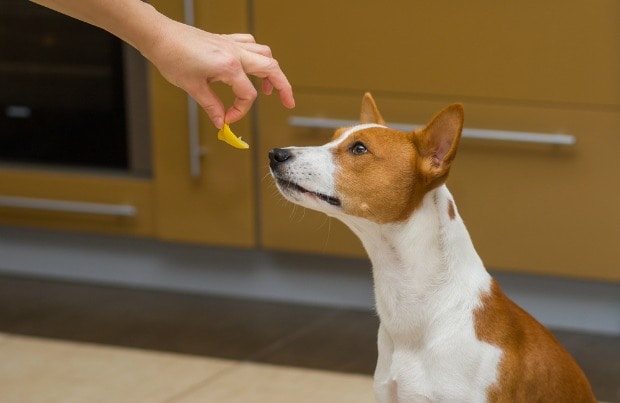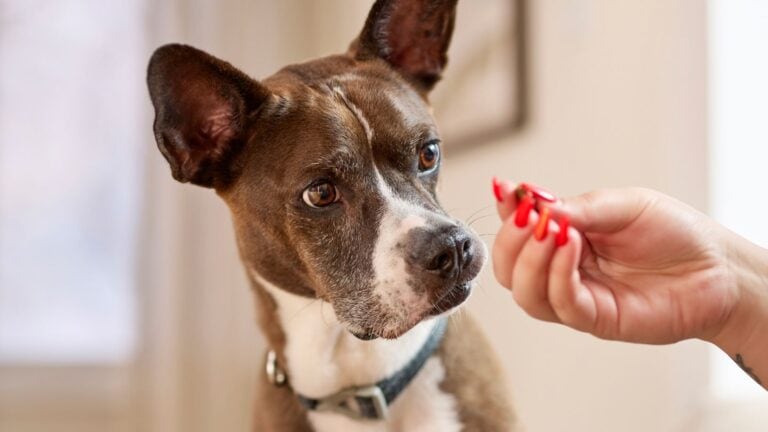Like cats getting scared of cucumbers (an act experts advise against doing to your cat), the latest viral phenomenon among some pet parents is giving their dogs or puppies a taste of a lemon. Videos capturing dogs wincing at the fruit are circling social websites, and they’re leaving a bitter taste with some concerned pet parents. While some animal advocates see the clips as cruel, others are wondering if it is unsafe for dogs to eat lemons as well.
Can Dogs Eat Lemons?
Technically, yes, but only very small amounts. Even then, it can cause GI distress, says Cassie Panning, a certified veterinary technician at the University of Minnesota’s College of Veterinary Medicine. “For practical purposes, lemons are not terribly dangerous unless eaten in large quantities,” she said.
Are Lemons Toxic to Dogs?
No, but the acidic fruit can cause upset stomach, vomiting, weakness and diarrhea if large quantities are ingested. Large quantities can cause other issues, too. “Depending on the dog and amount eaten, a large piece of peel could cause obstruction of the GI tract, which is an emergency,” says Amy Farcas, DVM, MS, DACVN, of Veterinary Nutrition Care.
Are There Any Benefits of Lemons to Dogs?
Unlike dog-friendly fruits like apples, blueberries and cantaloupe, lemons provide little to no benefits, Farcas says. “It’s possible that there may be beneficial phytonutrients (which aren’t well understood) present in [lemons],” she says. “But, like with us, there isn’t really a good way to deliver them without sugar or much dilution, so any potential benefit probably isn’t worth it.”
Can Dogs Have Lemon Juice?
“Lemon juice has no nutritional benefit for dogs and can cause stomach upset leading to vomiting and diarrhea,” says Panning. She also warns that since lemon juice is very acidic, it presents a higher risk of disrupting a dog’s acid base balance.
What To Do If Your Dog Ingests Too Much Lemon
If you suspect your dog has consumed large quantities of lemon, Farcas advises dog parents to observe their pets closely and watch for vomiting, nausea (most dogs with nausea will their lick lips frequently and have exaggerated swallowing motions), signs of discomfort, or other unusual behavior. If you notice any of these signs, take your dog to your veterinarian for observation.

Aly Semigran is a lifestyle writer for the world, and roommate of Ruby, the cutest dog in the world.
Share:









